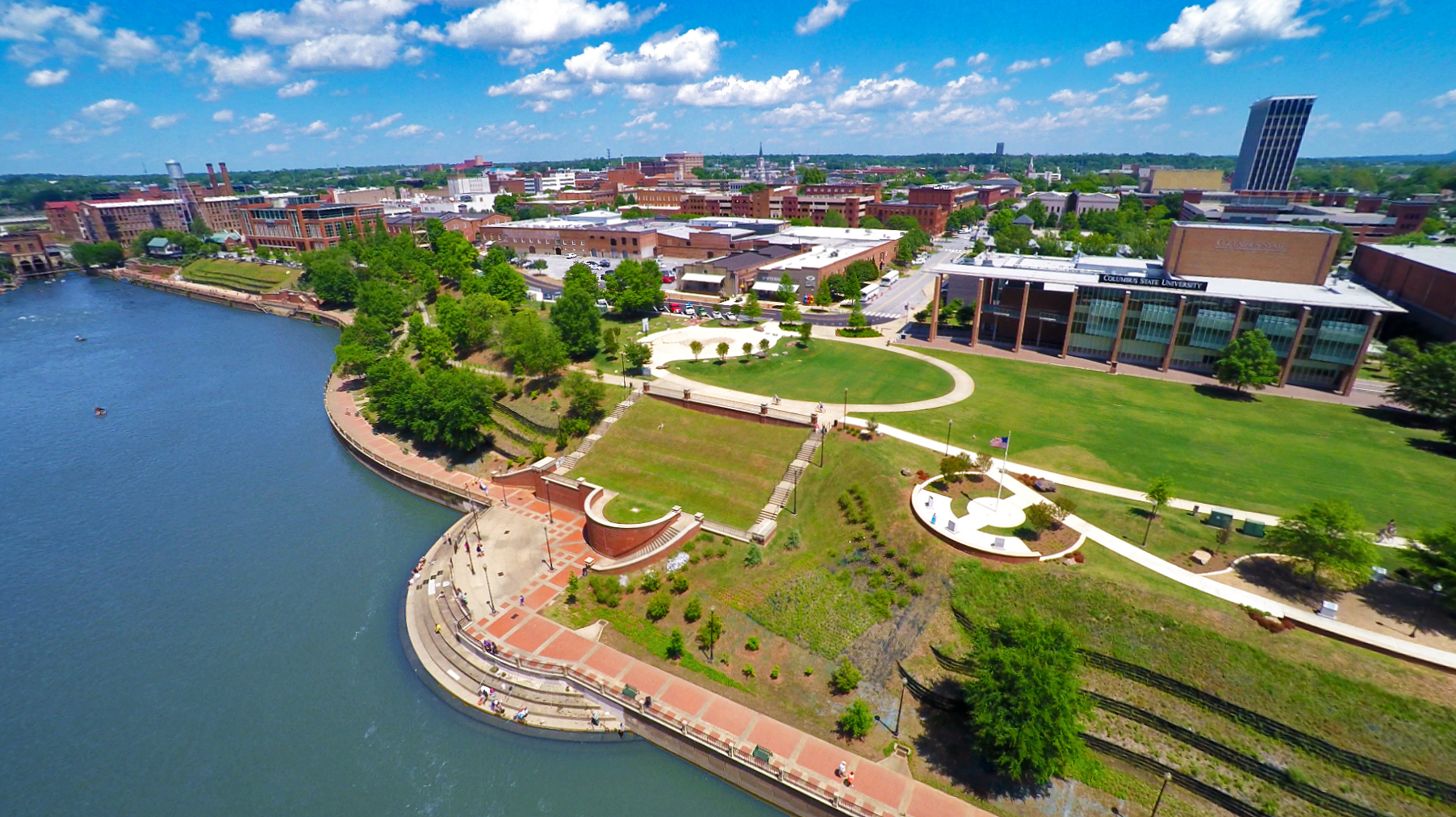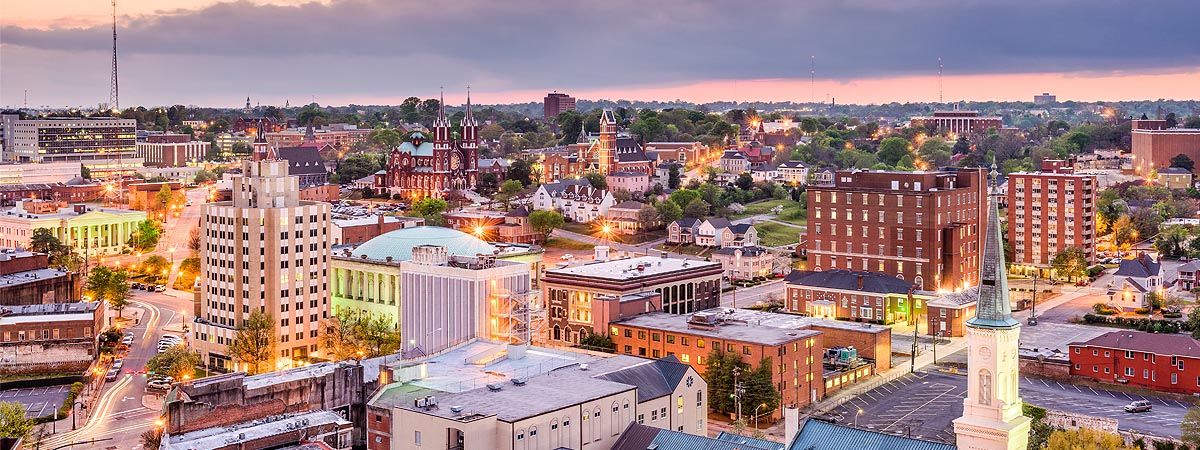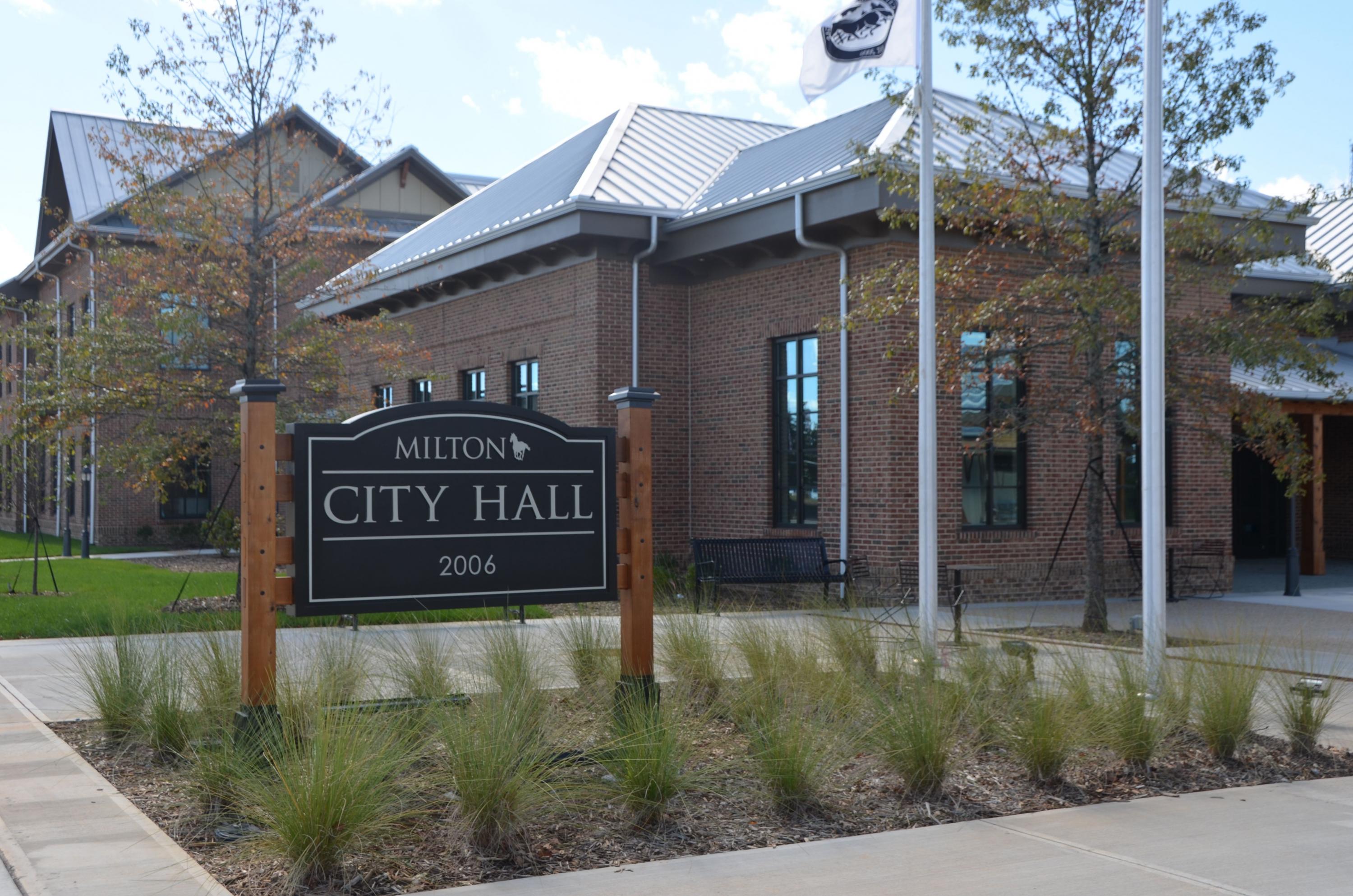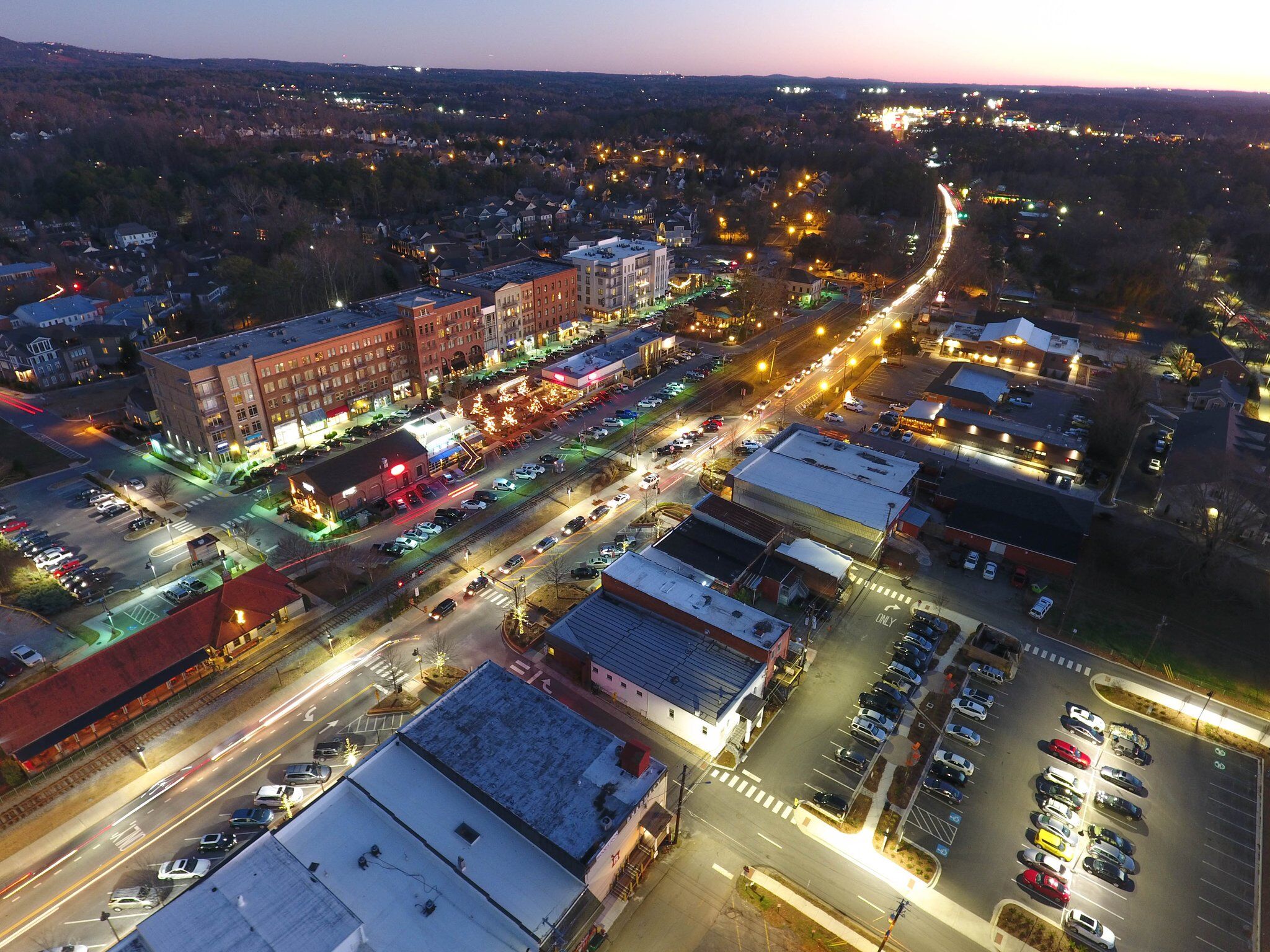
Recently, the latest class of the Georgia Smart Communities Challenge program shared their mid-term progress reports.
The latest class of the Georgia Smart Communities Challenge program is sharing mid-term progress reports.
Georgia Smart is a funding and technical assistance pilot program open to Georgia governments to develop and implement projects around mobility, equity, and smart resilience with assistance from Georgia Tech researchers. In June, the challenge named four new grant recipients – Columbus Muscogee County, Macon-Bibb County, the City of Milton, and the City of Woodstock.
During a recent virtual meeting, city and county representatives and their Georgia Tech partners discussed the status of their projects and the challenges they’ve faced along the way.
Macon Smart Neighborhoods
Macon-Bibb County is developing a system of smart kiosks to promote digital equity in underserved and at-risk areas. One in three Macon-Bibb County households doesn’t have access to broadband internet, while 1 in 5 is without access to a computer or smart device.
“The real problem is not folks having access to the internet, but having it at home,” said Joe Nabhan, GIS manager, Macon-Bibb County Government. “That’s especially important during these times when a lot of people are at home and not able to go out as much.”
Residents can use the kiosks at several locations around the county to find information about elections, public health, safety, crime, and government services.
Arthi Rao, research scientist, Center for Quality Growth and Regional Development, is leading research for the Smart Neighborhood project. She’s collaborating with the county to figure out where the kiosks are needed most, looking at residents’ income, education, and age, which influences social isolation and reduced mobility. Her team also launched an online survey for residents.
“We wanted to use community wisdom in terms of where they thought would be the ideal places for these kiosks and where we might optimize usage,” Rao said during March’s mid-term meeting.
Milton Smarter Safer Routes to School
The City of Milton is developing an interactive smartphone app that will provide real-time communication for parents of students who want to walk to school in a group, known as a “walking school bus.” Parents can use the app to see their kids’ real-time location, who’s walking with them, and confirm that they’ve arrived at school.
Encouraging students to walk or bike to school reduces car congestion from school drop-offs and pick-ups and promotes health and wellness. Studies show that fewer than 10% of school-aged students in the U.S. walk or bike to school in the morning, a significant decrease over the past 50 years.
“We’ve seen the results of what walking to school can do in terms of bolstering communities and social interaction, and physical activity is associated with better cognitive performance. So, our kids can do better in school if they have that morning walk to school,” said Kari Watkins, associate professor, School of Civil and Environmental Engineering. She’s leading the project with senior research engineer Angshuman Guin of civil engineering.
In the months since first launching the project, Milton officials and Georgia Tech researchers have surveyed and met with school leaders, parents, and students to get their feedback. “It gave us a lot of insight into how kids walk to school, what they like about walking to school, and what parents thought about the prospect of having an app that would assist with it,” said Michele McIntosh-Ross, principal planner, City of Milton.
Researchers have mapped current school routes, collected video data of students on their walks, and helped to develop and analyze the survey. The data will assist the city in gauging where to focus their efforts to create more walkable communities.
The project team will test the app this summer; their goal is to make it available to families in August.
Woodstock Smart Master Plan and Corridor Study
Significant population growth in the City of Woodstock, along with 100,000 event attendees every year, has caused traffic congestion and a parking shortage for residents, business owners, and visitors to downtown.
The city is addressing these challenges with SmartWoodstock, a masterplan for optimizing infrastructure needs and modeling land-use changes. Researchers are concentrating on the quarter-mile radius around downtown Woodstock. Ramachandra Sivakumar, senior research engineer, Center for Spatial Planning Analytics and Visualization, said the area “captures the essence of what’s happening in terms of dining, retail, wellness, and other points of interest. The quarter-mile is the sweet spot.”
The project team surveyed residents in person and online about the benefits of smart technology that are most important to them, receiving hundreds of responses. “We’re fortunate because we have an involved community in the downtown district,” said Katie O’Connor, senior city planner, City of Woodstock.
Survey results show that improved vehicle, pedestrian, and bicycle safety, as well as transportation travel times, are all important to residents. The results will help the city to determine the most useful technologies for the downtown corridor, like license plate readers, roadside sensors, and smart parking meters.
While the first year of the project has focused on planning, the second and third years will be a pilot project that implements technology.
Columbus Smart Uptown
The City of Columbus is developing technologies for its uptown district to promote safety, security, and a smart transportation system. Proposed technologies include free public wi-fi, license plate readers, and sensors. The city has already installed two sensors, which are collecting data, and have tapped into video feeds from the police department.
City officials are partnering with Georgia Tech to find suitable locations for Internet of Things devices and analyze data to provide better service and reduce response time for first responders. A significant component of the project is digital twin technology – a virtual model of the uptown district. The digital twin will incorporate new and existing city data, providing insights for more effective decision-making like reducing traffic accidents for safer streets.
“We want to evaluate street conditions and see the potential causes [of crashes] and safety concerns,” said Neda Mohammadi, postdoctoral fellow, School of Civil and Environmental Engineering. She’s collaborating on the project with John Taylor, professor, School of Civil and Environmental Engineering and Director of Network Dynamics Lab, and Russ Clark, senior research scientist, School of Computer Science.
“A huge amount of work has gone in already into phase one. It’s amazing what Georgia Tech can do with raw numbers to turn them into something that we can begin to start using and comprehending,” said Andrew Lesh, application developer, Columbus Consolidated Government.
Including the 2018 inaugural class, which is continuing work on their projects, Georgia Smart now has a total of eight smart community projects across the state.
“The program is a true testament of Georgia's innovation and collaboration efforts," said Debra Lam, managing director of Smart Cities and Inclusive Innovation at Georgia Tech. "While some states can claim a sole smart city or two, Georgia can showcase a diverse group of communities, each pursuing different smart applications to improve their quality of life. The projects can also serve as models for other local communities and beyond.”
For a second summer, Georgia Tech students will join the Georgia Smart projects full time as part of the Smart Community Corps program, where they'll work on-site alongside communities. The fellowship is in partnership with Serve Learn Sustain, the Center for Career Discovery & Development, and the Student Government Association. Microsoft, EPA, and the Community Foundation of Central Georgia fund the programs.
The Georgia Institute of Technology organizes Georgia Smart in partnership with Georgia Power, Atlanta Regional Commission (ARC), Association County Commissioners of Georgia, Georgia Centers for Innovation, Georgia Chamber, Georgia Department of Community Affairs, Georgia Municipal Association, Metro Atlanta Chamber, and Technology Association of Georgia, Georgia Planning Association, and the Global City Teams Challenge.
Additional Images


